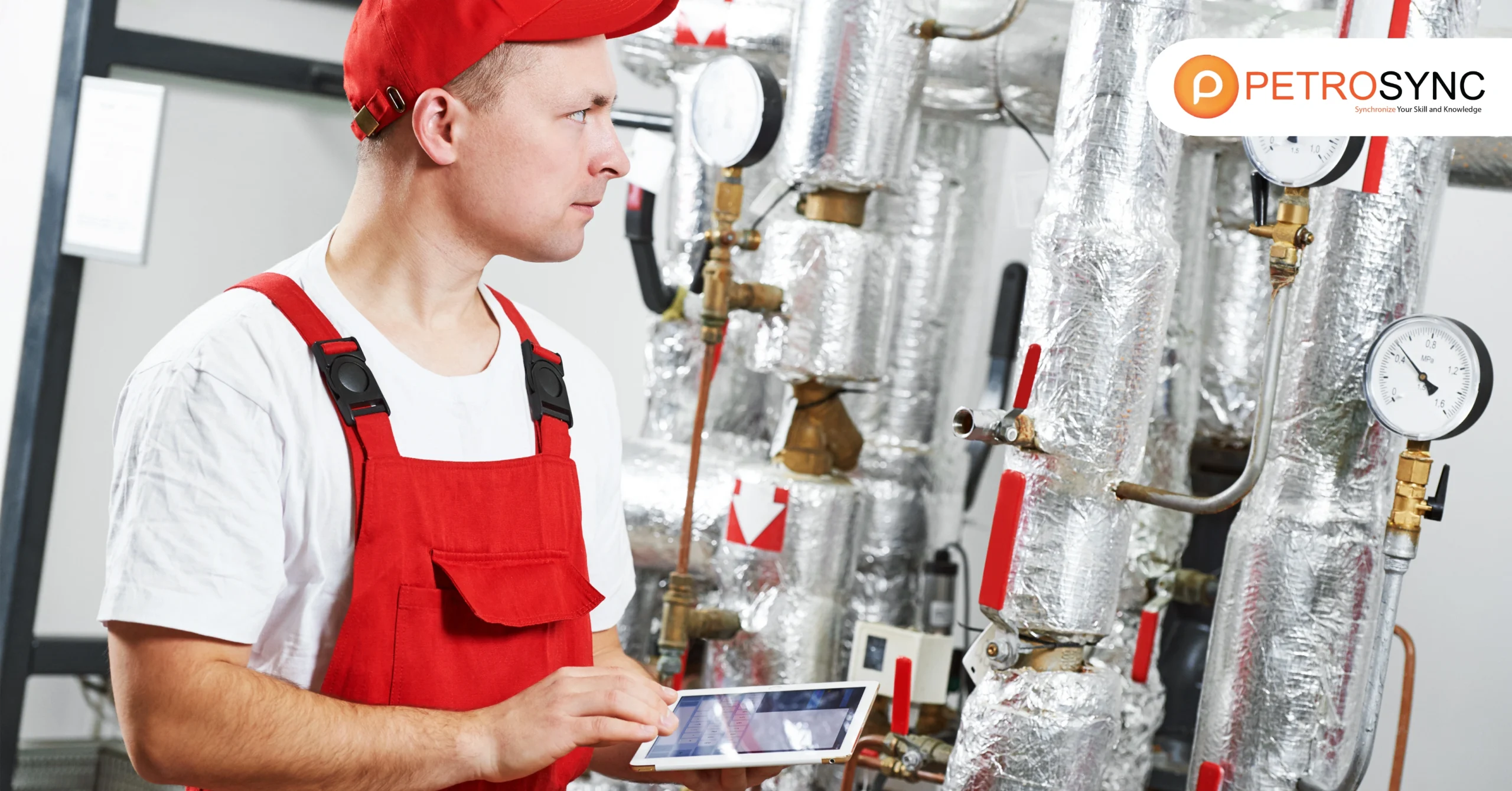Adherence to industry standards is crucial in the rapidly changing areas of oil and gas, petrochemicals, and energy. The American Society of Mechanical Engineers (ASME) creates some of the most well-known and generally accepted standards. Understanding ASME norms and standards is crucial for professionals seeking to broaden their expertise and assure compliance.
ASME courses, such as those given by PetroSync, provide both the fundamental and advanced knowledge required to negotiate these complicated requirements and develop one’s career in these industries.
What Is ASME?

The American Society of Mechanical Engineers (ASME) is a professional organization founded in 1880, dedicated to promoting the art, science, and practice of multidisciplinary engineering and allied sciences. ASME is well-known for developing guidelines and standards that improve public safety, enable worldwide trade, and foster innovation in a variety of engineering sectors.
The high standards set by ASME are especially important in mechanical engineering, where precision and safety are critical. ASME codes apply to a wide number of industries besides mechanical engineering, including civil, electrical, and chemical engineering. For example, in the oil and gas industry.
ASME codes govern the design and operation of pipelines, pressure vessel, and other important infrastructure. ASME’s attention to detail and emphasis on safety have positioned it as a critical player in establishing engineering practices around the world. Compliance with ASME standard is typically needed for facilities in a variety of industries.
What Is an ASME Course?
An ASME course is a personalized training program that introduces professionals to ASME regulations and standards relevant to their field. These courses frequently focus on the interpretation and application of ASME standard in real-world scenarios. ASME courses, available both online and in person.
Provide a detailed understanding of the technical aspects of standards and provide professionals with the tools they need to efficiently implement them in their daily work. ASME courses are intended to facilitate a variety of learning methods. They can include academic instruction, case studies, practical exercises, and even hands-on workshops in which participants interact in simulated environments.
For example, an ASME pressure vessel design course could include stress calculation and material identification exercises based on ASME Section VIII recommendations. Furthermore, many courses offer certification upon completion, which can be extremely useful for professional advancement by validating the individual’s skills and devotion to industry standards.
How To Study ASME?
To study ASME codes effectively, you should start with a fundamental understanding of the specific code relevant to your industry. Enroll in an ASME course that is tailored to your field and interests. These courses offer structured guidance and are usually led by industry experts who bring a wealth of practical knowledge.
Additionally, complement your studies with practice exams, industry literature, and real-world case studies. Engaging with a training provider such as PetroSync can give both basic and higher level courses tailored to different skill levels. It is also recommended that you join professional organizations or internet forums relevant to ASME.
These sites can provide insights into the most recent modifications to codes and standards, as well as practical guidance from other professionals. Some people find it beneficial to supplement their academics with field experience. For example, engineers working on pipeline projects may find it useful to read ASME B31.3 while actively monitoring or participating in the construction or inspection process.
How Many ASME Codes Are There?
ASME has created approximately 600 codes and standards that address a wide range of engineering fields. However, in the oil and gas, petrochemical, and energy industries, the most applicable codes include ASME Section VIII for pressure vessels, ASME B31 for pipe systems, and ASME PCC-2 for pressure equipment repair, among others.
Each code focuses on a single component of mechanical engineering and outlines thorough criteria for design, construction, inspection, and maintenance. The enormous catalogue of ASME codes can be intimidating at first. To traverse these laws, many professionals begin by focusing on the essential requirements that are important to their employment.
ASME codes are organized into sections, divisions, and subsections, with each covering a distinct area of engineering practice. ASME B31.4, for example, covers liquid pipeline transportation systems, whereas ASME B31.8 concentrates on gas transmission and distribution piping systems. Understanding the scope of each code enables professionals to identify which are most relevant to their projects and responsibilities.
What ASME Training Is Available At PetroSync?
PetroSync provides comprehensive ASME training courses to meet the diverse professional needs of the oil & gas, petrochemical, and energy sectors. The following are some of the important ASME training courses available:
ASME PCC-2 Repair of Pressure Equipment
The ASME PCC-2 course focuses on the standard for the repair of pressure equipment and piping. This course is meant for professionals who work on pressure vessels and related equipment. Participants learn about different repair procedures, such as welding, mechanical repairs, and non-metallic repairs.
To ensure that the equipment fulfills safety and performance criteria. The training covers both the technical requirements and the practical issues of implementing these standards. Learners participate in case studies and problem-solving exercises to strengthen their understanding of design principles. By the completion of the course.
Participants will have a thorough understanding of process piping requirements and will be ready to supervise the installation, operation, and maintenance of compliance systems.
ASME Section VIII Division 1 & 2 – Pressure Vessel
The ASME Section VIII Division 1 & 2 course covers the rules for pressure vessel construction, with an emphasis on materials, design, fabrication, testing, and inspection. Division 1 focuses on simpler, lower-pressure designs, and Division 2 focuses on more complicated, higher-pressure equipment.
This course is appropriate for engineers who design, manufacture, or inspect pressure vessels for high-pressure applications. Division 1 emphasizes a more cautious design approach ideal for low-risk applications, whereas Division 2 allows for optimal designs that account for fatigue and fracture mechanics.
Understanding both divisions allows professionals to make informed decisions about material selection, design calculations, and safety concerns based on their projects’ individual requirements.
ASME B31.3 – Process Piping Code Design Requirements
The ASME B31.3 course digs into the process piping code, including rules for pipe system design, materials, fabrication, assembly, and testing. This course is required for professionals that build and operate piping systems in the oil & gas, chemical, and power generating industries.
Participants receive a thorough understanding of how to guarantee that piping systems are safe, dependable, and comply with ASME regulations. The training covers both the technical requirements and the practical aspects of applying these codes. Learners use case studies and problem-solving tasks to reinforce their understanding of design principles.
Participants will complete the course with a solid understanding of process piping standards and the ability to supervise the installation, operation, and maintenance of compliance systems.
Advance Your Career with PetroSync’s ASME Course
Completing an ASME course through PetroSync equips professionals with the skills and knowledge needed to excel in their careers. With a focus on practical application, these courses prepare you to tackle real-world challenges confidently and competently.
Enhance your understanding of ASME standards and take your career to the next level with PetroSync’s industry-leading training programs. By choosing PetroSync, you gain access to expert-led training, hands-on learning opportunities, and valuable certifications that set you apart in a competitive job market.

Results-oriented and thorough SEO specialist with extensive experience in conducting keyword research, developing and implementing digital website promotion strategies and plans, managing campaigns to develop company websites in the digital world, excellent knowledge of marketing techniques and principles, and attentive strong attention to detail.







